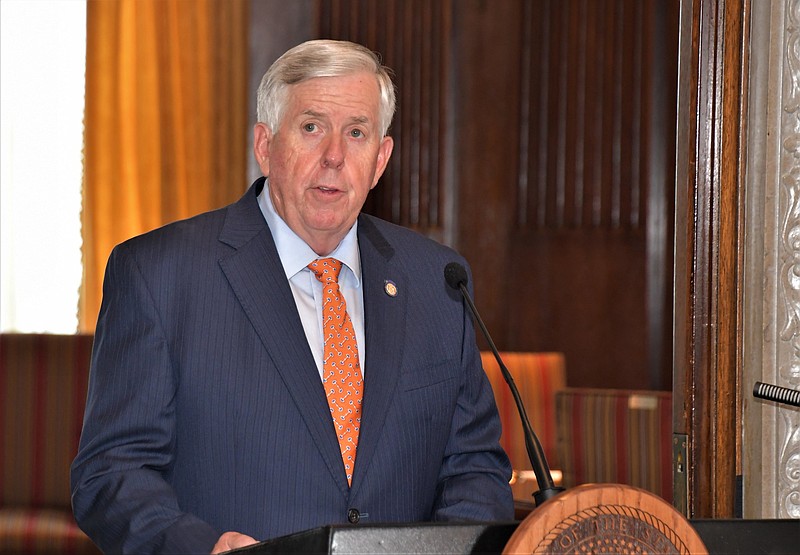Despite calls from protesters outside the Missouri State Capitol and from senators inside, Gov. Mike Parson said he will keep the special legislative session that started Monday focused on addressing violent crime.
"None of us, no matter where we're from, want to see innocent people and children being shot in the streets," Parson said at an afternoon briefing. "We have a serious problem with violent crime that continues to escalate, and we cannot wait until next year to find solutions, which is why I called the special session."
He added, "As I said before, this special session will be narrowly focused on violent crime, and the steps we can take to address it."
The special session began Monday, with the Senate convening at noon.
Protesters outside the building and bills filed by some Democratic senators called for measures to safely re-open schools this fall amid the COVID-19 pandemic, and for accountability of law enforcement.
State Sen. Jill Schupp, D-Creve Coeur, also filed a bill calling for expansion of background checks on firearms purchases.
Other bills filed Monday by Republicans in the Senate dealt with abortion, concealed carry of firearms and power over the St. Louis circuit attorney.
Parson told a reporter after the Senate had adjourned that he had not seen what legislators had introduced, but again said the session would be narrowly focused on addressing violent crime.
On COVID-19, the governor urged counties to use federal Coronavirus Aid, Relief and Economic Security Act funds they've received for testing and contact tracing efforts.
Of 81 Missouri health departments that responded to a survey, only 17 reported they had received CARES Act funding support from their county, Parson said.
"We have to do better," he added.
The Missouri Department of Health and Senior Services has 37 contact tracers supporting local agencies, and an additional 150 contact tracers are being trained for the same purpose, Parson said.
He also said state employees outside DHSS are being identified to be trained as contact tracers.
That might mean training someone in each division or department, and people trained would have the ability to, in turn, train more people.
"I think as many people as you can get trained to be able to use those resources, whether it's across the state employee side of it, or state employees going out to different areas to be able to teach - it just gives us more opportunities to do contact tracing," Parson said.
Parson said he will travel across the state this week, including to meet with school districts and learn about their reopening plans. That includes a meeting with Mid-Missouri school districts at Capital City High School in Jefferson City scheduled Tuesday.

